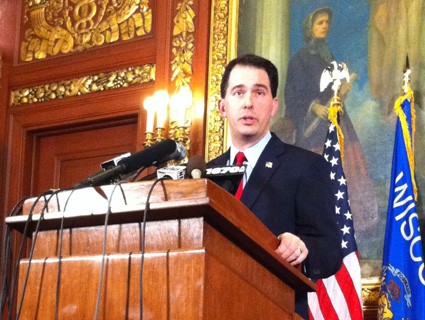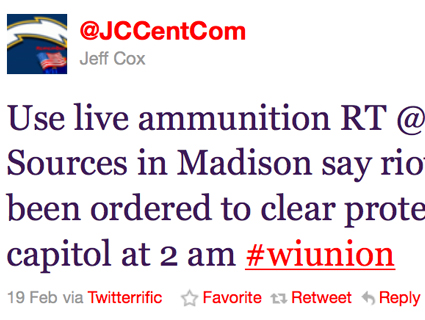For the past week, Wisconsin Republican Governor Scott Walker has wielded the threat of statewide layoffs if his controversial “budget repair bill” isn’t passed immediately. He’s said that as many as 1,500 state workers—teachers, nurses, janitors, bureaucrats, and more—could lose their jobs by July if the 14 Senate Democrats in hiding didn’t return so the Senate could vote on the bill. But while Walker casts the current layoffs as a purely fiscal issue, he’s used the threat of job losses before as political leverage, playing chicken with the livelihoods of public workers.
In the fall of 2009, Milwaukee County’s budget was in bad shape. Facing a $3 million deficit, Walker, then the county executive, went looking for places to cut. In late October, he announced plans to axe 180 county workers by Thanksgiving as a way to balance the budget. With the year drawing to a close, Walker argued, the only way to solve Milwaukee County’s financial headache was layoffs.
Not long after, though, county department chiefs returned to Walker with promises to save up to a million dollars through non-employee cuts of their own. Just as soon as he’d announced that pink slips were going out, Walker backed off. No one was getting laid off, he announced.
But here’s the kicker: In an interview a few days after backing down, Walker told a Madison radio station that the layoff threat was merely a ploy. “I needed to get their attention to show how serious we were about having a balanced budget,” Walker said on the “Sly in the Morning” show on WTDY radio.
Graeme Zielinski, a spokesman for the Democratic Party of Wisconsin, said Walker has played political games like this for “his entire career.”
“He’s played games with people’s livelihoods, oftentimes with zero reason,” Zielinski says. “He kicks around the less fortunate, and this time he’s kicking aorund the working people in this state.”











